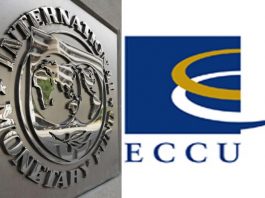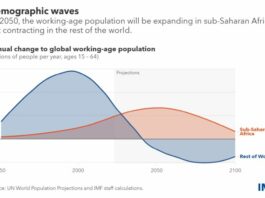By Dr Remi Piet and Arthur Deakin
With their sights on a potential boom in the Guyanese economy, over 100 United States-based businesses have pending inquiries to set up operations in the small South American country inhabited by 780,000 people.
These companies are diverse in their size and focus, ranging from Jet Blue Airlines to smaller construction services. Citibank, the third-largest bank in the United States, is holding talks with the Bank of Guyana on establishing a presence in the country to provide funding to government institutions. This is an important development considering the historic exodus of US and Canadian banks as they sought to de-risk their portfolios. Just this month, a U$D 75 million Hilton hotel project was announced, paving the way for 600 new jobs. These examples reflect the growing interest among foreign investors and businesses as Guyana extracts 120,000 barrels of oil per day, a number that is expected to increase six-fold by 2025.
Driven by the hydrocarbons sector, Foreign Direct Investment (FDI) in Guyana grew 133 percent in 2018 and is expected to have doubled to U$D 1.2 billion in 2019. Albeit, FDI in Latin American and the Caribbean rose 13 percent in 2018, the 120 percent discrepancy between Guyana and the region is reflective of foreign investors’ bullish view of the country. If properly administered, FDI could lead to a strong spurt in economic development in Guyana experienced in similar petrol-states, although only a few have been up to the institutional challenge needed for a sustainable societal and economic development.
Still, in its most simple terms, foreign investment creates more job opportunities; which in turn leads to higher incomes and additional consumption power. With the right guardrails in place and consistency in fighting corruption and embezzlement, FDI in the extractive sector can lead to improved living conditions for the Guyanese population while concurrently establishing a diverse and competitive business environment.
However, despite recent progress in improving governance and transparency, many of the country’s challenges still remain. The World Bank’s 2020 Doing Business Report ranked Guyana 24th out of 32 in the region in terms of ease of doing business (134th out of 190 globally). The country ranks particularly poorly in dealing with construction permits, getting electricity for entrepreneurs and trading across borders. While the country would gain from increased openness of its domestic market, Guyana made trading across borders more expensive in 2020 by increasing fees for mandatory inspection.
Despite this relatively poor showing, Transparency International’s Corruption Index confirms that Guyana is on the right track. Along with Greece, Guyana has recorded the highest improvement in cracking down on corruption between 2012 and 2019. This reflects that some of the important institutional reforms needed to transparently administer the oil revenues—such as holding politicians accountable for state resources—have been already implemented. The creation of a sovereign wealth fund is likely the most significant accomplishment in this realm, but there was also the adoption of a new civil code in 2018 that made it easier to enforce contracts. These policies, and many others, will be necessary for the proper management of billions of dollars in annual oil revenues.
For a foreign investment to be positive for the development of the country, proper regulations need to be put in place to protect local small businesses. A proper framework would encourage foreign investment while simultaneously ensuring that mom-and-pop shops are able to compete through fiscal and labor incentives. This would include transforming the recently proposed local content policy into law, which seeks to ensure the participation of Guyanese people in employment opportunities.
Foreign investment should also seek to serve the long-term needs of the local populace either through direct material benefits, such as the construction of new infrastructure, to supporting the burgeoning network of local businesses. Even more efficient would be indirect bottom-up channels such as the expansion of financial credit for small businesses and investments. Data shows that foreign investors can only be successful in the long run if they are an active actor of the development of local communities. A lack of social and economic development will fuel opposition to their projects and constantly jeopardize the success of the said venture.
The upcoming administration, whether led by the incumbent David Granger from the APNU-AFC or Irfaan Ali from the opposition’s PPP/C, will certainly have its hands full. First, it needs to diversify its economy. US-based First Bauxite’s US$ 100 million investment of a bauxite mine is promising, but the government should also seek investment for its traditional farming sector to make it more efficient and cost-effective. In particular, clear decisions must be taken towards the sugar industry to limit the dependency of the sector to governmental subsidies and lead to sustainable competitiveness.
The government also ought to improve its labor and immigration policies to ensure jobs for the Guyanese people while protecting small businesses. This should include market-friendly labor policies that are beneficial to employers, while simultaneously providing adequate protections for employees. Lastly, foreign investment should be further encouraged via tributary incentives and friendly regulations, including in the mining and construction sector, where foreign investors often integrate better environmental and social best practices within their operations.
The winner of Guyana’s elections on March 2, will gain the opportunity to capitalize on the potential created by the country’s nascent hydrocarbons industry. While the raw production and revenue figures are staggering, implementing policies to encourage growth in other areas of the economy will be critical if the impact is to be broad and long-lasting.
Dr Remi Piet is a Senior Director at Americas Market Intelligence (AMI) and leader of the firm’s Natural Resources and Infrastructure Practice.
Arthur Deakin is an Analyst at AMI and conducts research for a variety of AMI practice areas, including payments, logistics and natural resources.





[…] and gas sector and ancillary industries. In comparison, during the period between 2018 and 2019, FDI in the Caribbean and Latin America rose 13 percent. To facilitate increased FDI in Guyana, the government established the Guyana Office for Investment […]